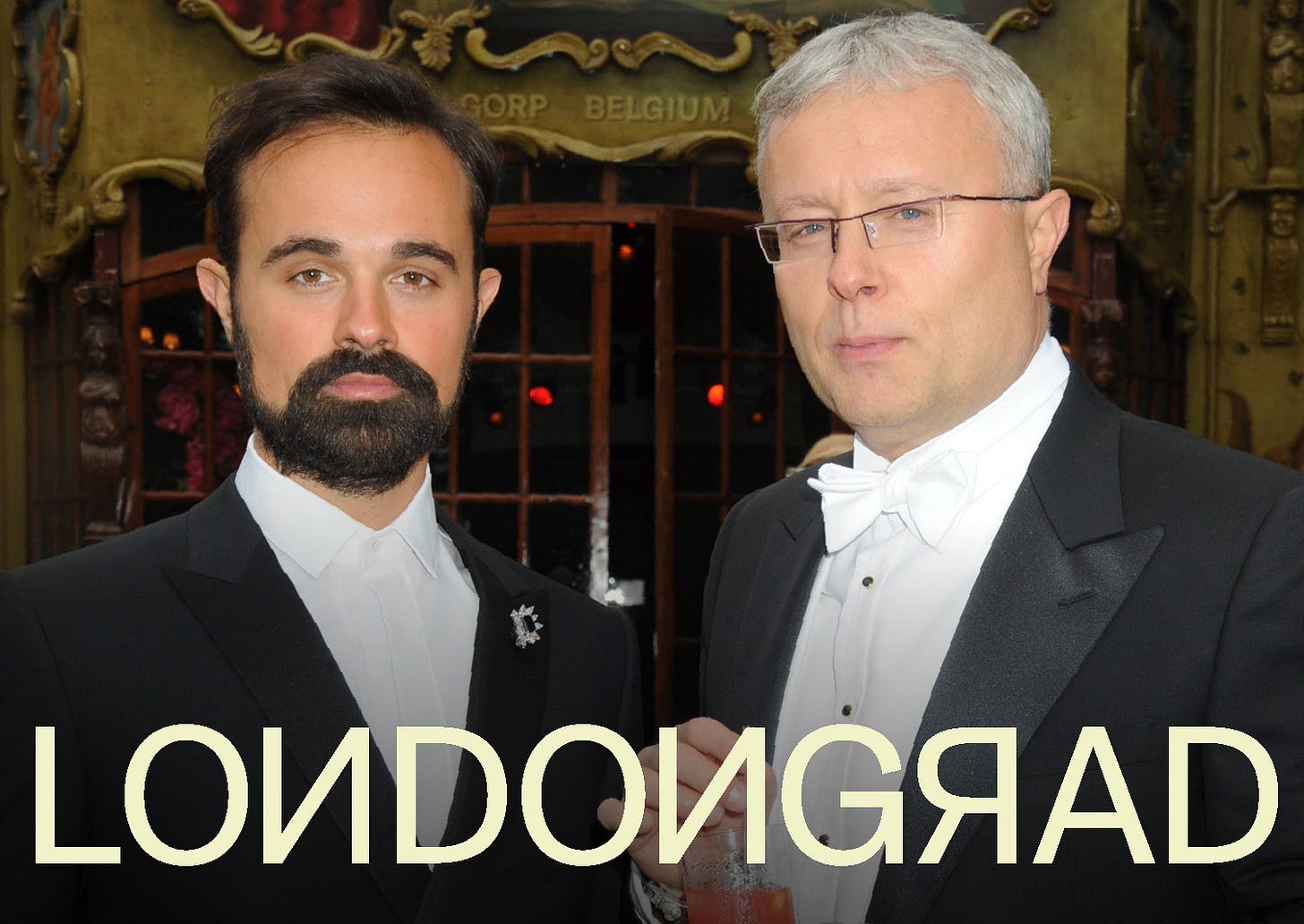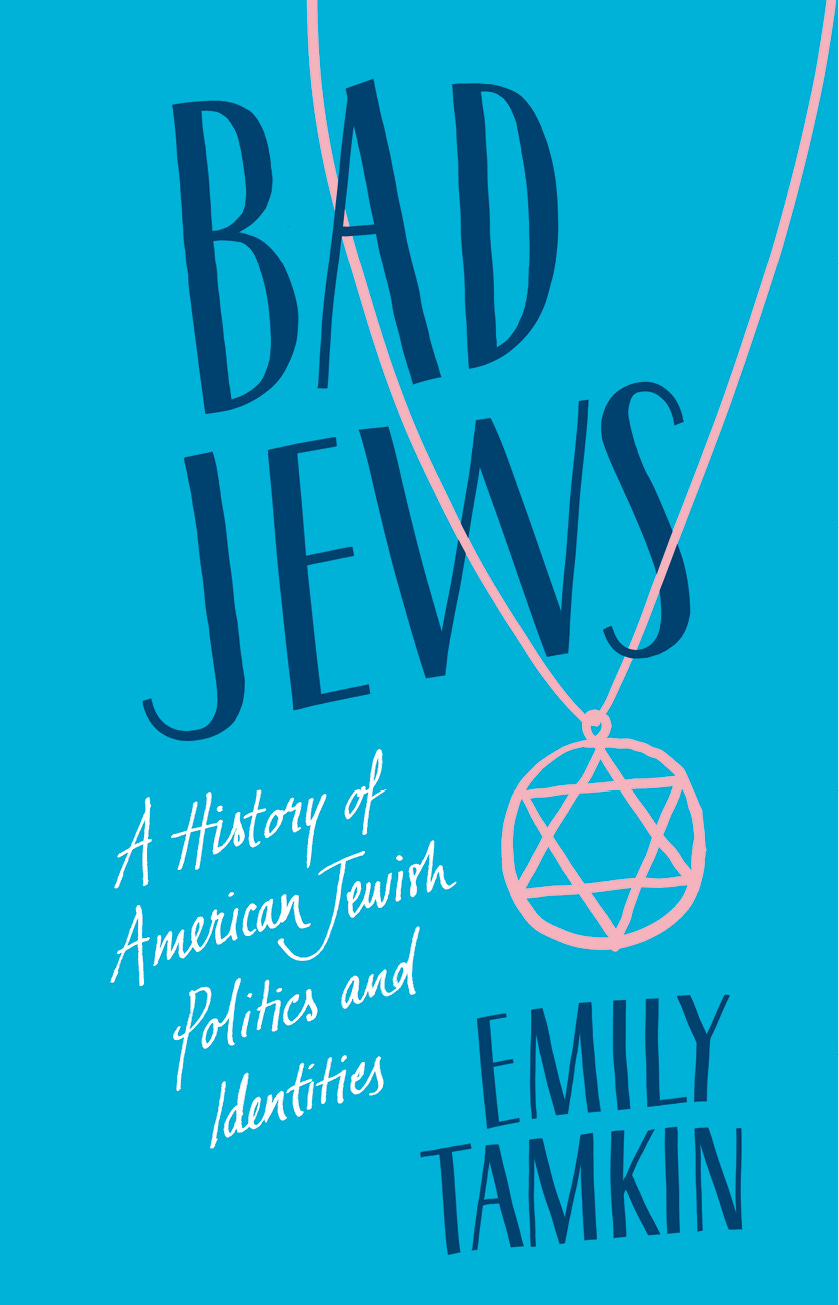Three Recs, grief edition
A happy-sad TV show, an investigative podcast about oligarchs, the most Jewish book ever
You don’t come here for too much introspection, but since the stories we consume are part of our emotional ecosystem, you’re going to get a bit this issue. As ever, if you’d rather not, recs are below the fold.
A good friend of mine (and of some of yours) died a week ago.
It still feels weird to say that. I still don’t quite believe it. I suspect it will take a long time before it sinks in.
In one of the last conversations I had with her in which I was sure she understood me, I told her about The Diplomat (one of last issue’s recs), because I knew she’d love it. She didn’t want me to tell her the whole story, though, because she wanted to watch it when she got better. Now, she’ll never get the chance, I guess.
When she first got sick, I went to the hospital and we watched the latest episode of The White Lotus. This winter, we discussed the new season of Slow Horses, and she read the books, since smart spy thrillers are a good way to pass the time when you’re stuck in a hospital room.
Years ago, before any of us ever imagined she’d get sick, I rolled out of bed and stumbled over to her house by 8am every Monday morning for a few months, so we could watch the final season of Game of Thrones together practically the moment it came out in the UK. One of those mornings, we discovered that her gardener had been in a previous season of the show, in his other life as an actor.
When I first moved to the UK, she was my only friend who would reliably go see stupid action movies and superhero movies with me. Shortly after I moved here, she co-founded a book club and invited me to join.
I’ve realized, in the last couple weeks, that there’s a reason there are so many platitudes about grief. They’re annoyingly true, and nothing anyone can tell you will make it make sense or feel better. It’s on you to figure out how to get through it.
So, at this moment, I’m getting through it by thinking about how much she loved stories. How they got her through these tough recent months. How they allowed her to escape the hospital room and the inevitable fear that she so rarely let show.
Stories matter for so many reasons. But this is a big one.
Tell your people you love them. And tell them good stories.
On to this week’s recs…
Rec 1
Rain Dogs (TV)
Okay, so, when I first heard about this BBC comedy-drama about a working-class single mom from London struggling to keep a roof over her daughter’s head and make it as a writer, I assumed it would be dark and intense.
Then, I saw it was starring Daisy May Cooper, who is objectively hilarious and brilliant, even when I don’t love the projects she’s in.
So the verdict is: All of the above!
In what I can only describe as the biggest compliment ever, this 8-ep show (half hour eps, too!) reminds me of The Bear. It’s laugh-out-loud funny but it’s also heart-breakingly sad. It’s batshit nuts but also real and close to the bone. It’s a painfully honest exploration of love and poverty – but it’s also so warm and kind and unexpected. And beautiful. The cinematography is breathtakingly beautiful as it shows a Britain not often portrayed this way.
Yes, it made me cry, of course it did.
If you’ve been saying you want something fresh and different, this is what you’ve been waiting for.
Rec 2
Londongrad (pod)
We all know that London is a cesspool of Russian oligarch money, right? Right??
Londongrad is long-form investigative audio journalism at its finest. Journalist Paul Caruana Galizia and his team at Tortoise dig into the role of Russian oligarchs and their money in the UK – with a particular focus on the high-profile Lebedev family, who own one of the UK’s big newspapers, are good friends with Boris Johnson, and, like many oligarchs, are deeply embedded in British upper-class society. Did I mention that the son, Evgeny, now has a peerage and sits in the House of Lords as (in part) Baron of Siberia? And the father, Alexander, is a former KGB officer?
Scandalous as all that is, the story isn’t just about the Russians. It’s also about Britain’s wealthy and political elite, and how they haven’t seen it as corruption to take dirty money and climb into bed with oligarchs. There are some crazy stories in here that I’m not even going to try to sum up – you’re just going to have to listen.
Technically, this is a bit of legacy rec, since I listened to it when it came out last summer. But Paul (whose mother, Daphne, was a highly respected Maltese journalist who was murdered a few years ago after exposing corruption in Malta) has just come back with a new season looking at Iran’s behavior in London. And before I finish that and want to rec it, I figured I should rec the original series, which was one of my favorite listens of last year.
Where: wherever you listen to podcasts, or you can subscribe to Tortoise to listen there and support their investigative journalism.
Rec 3
Bad Jews (book)
And now for something a bit lighter! I’ve been going around recommending this to people (read: my family) for weeks, but I actually finished it yesterday just in time to officially recommend it to you.
The whole premise of this nonfiction book – part personal essay, part anthropological investigation – by Emily Tamkin is that a large swathe of American Jews these days describe themselves as “bad Jews.” Or, if they don’t describe themselves that way, they’ll have lots of other people in mind whom they consider “bad Jews.” But in an ethnicity/culture/religion (which is it??) that doesn’t have one arbiter of authentic Jewishness, what makes anyone a “good Jew” or a “bad Jew”? That’s just the sort of question we love – and love to argue about.
Tamkin sets out to figure it out, starting with the history of Jewish immigration to the US (spoiler alert: since before the US was a country) and focusing predominantly on the 20th and 21st centuries. She examines how (some) Jews became white (if they ever did), and looks at how much the community – such that it ever was one – has splintered socially, politically, and religiously over the years.
I found the earlier parts of the book most compelling – once it gets into modern political debates, I felt like I was in familiar territory, but that may not be the case for everyone. I read this as someone who thinks about her own Jewishness (or lack thereof), but I also think it will be interesting for anyone who’s ever been curious about the American Jewish community or how minority immigrant communities grapple with assimilation.
Where: Reserve it at your library or order from your non-Amazon bookseller of choice (like Bookshop US or Bookshop UK).
(In the name of full transparency: I’ve included affiliate links to Bookshop.org – if you’re going to order from them anyway, please use my link so I can make a little extra cash! If you want to see/order any/all of my book recs, I’ve made lists on Bookshop, too: US version, UK version.)
That’s all for issue 5! What are you reading/watching/listening to that I should be aware of? Drop me a line (or comment) to let me know if you check out any of my recs and what you think.
Please spread the word and I’ll see you in a couple weeks!
xo
Kate
Did someone share this with you?






